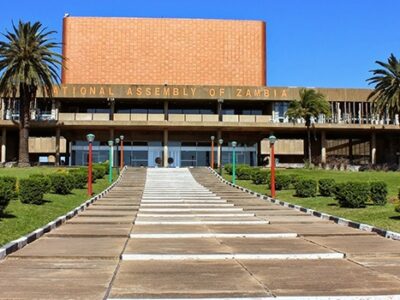In today’s digital age, young people spend significant time online, gaining information, communicating and expressing themselves through various digital platforms.
However, this increased online presence brings new obstacles and risks, including online abuse, cyberbullying, and data privacy concerns.
It is crucial to explore youth participation in the digital world, the issues they face regarding digital rights, and efforts to promote safe and responsible internet use.
Online harassment and cyberbullying are major issues, especially on social media platforms.
Young people often become targets of bullying, trolling, and harassment, leading to emotional distress, mental health issues, and sometimes physical harm.
In many African countries, including Zambia, limited legal frameworks and resources hinder effective combat against cyberbullying, leaving victims without adequate protection or recourse.
Wilkins Sikazwe, an Information and Communication Technology and Internet expert, highlighted growing concerns about the collection, use, and sharing of personal data by both private companies and governments.
Service providers like Airtel, MTN, and Zamtel are involved, and many young people are unaware of their rights regarding personal data, making them vulnerable to privacy breaches.
“In some African countries, government surveillance is a concern, particularly in the context of political dissent. Youth activists and bloggers are at risk of being monitored, with their online activities potentially used against them,” Sikazwe stated.
He also noted that a lack of digital literacy and critical thinking skills makes it challenging for young people to differentiate between credible sources and misinformation.
“To empower the next generation with essential digital skills, we propose making digital literacy a compulsory part of the school curriculum from primary school onwards. This includes teaching students how to navigate the internet safely, evaluate online sources critically, and understand the impact of their digital footprint,” he added.
The Internet Society (ISOC) has played a key role in raising awareness about digital rights and promoting safe internet practices across the continent. Their programmes have empowered youth with the knowledge and skills to navigate the online world responsibly.
“TechSheCan is a Zambian initiative that has contributed to narrowing the digital gender gap in Zambia and has empowered participants with the skills and knowledge to use the internet safely and responsibly,” Sikazwe noted.
It is important to educate students about the long-term implications of their digital actions, helping them understand how online behavior can affect future opportunities.
Moses Muleba emphasized that social media platforms and tech companies can better protect the digital rights and well-being of youth by implementing localized, age-appropriate designs that cater to regional cultural contexts and varying levels of digital literacy.
He suggested that reliable age verification methods and parental management options could further safeguard young users.
Platforms should also create safe online communities with crisis support features and ensure accessibility in low-bandwidth areas, with inclusive designs for youth with disabilities.
In conclusion, the digital landscape in Africa and Zambia presents both opportunities and challenges for youth. While the internet offers immense potential for learning, connection, and empowerment, it also exposes young users to significant risks such as online harassment, privacy concerns, and misinformation.
Addressing these challenges requires a comprehensive approach involving education, policy, and technology.
Promoting digital literacy, online etiquette, and cybersecurity best practices through local initiatives is crucial.
Social media platforms and tech companies have a critical role to play by implementing age-appropriate designs, enhanced privacy settings, and community-led moderation to protect young users.
WARNING! All rights reserved. This material, and other digital content on this website, may not be reproduced, published, broadcast, rewritten or redistributed in whole or in part without prior express permission from ZAMBIA MONITOR.












Comments